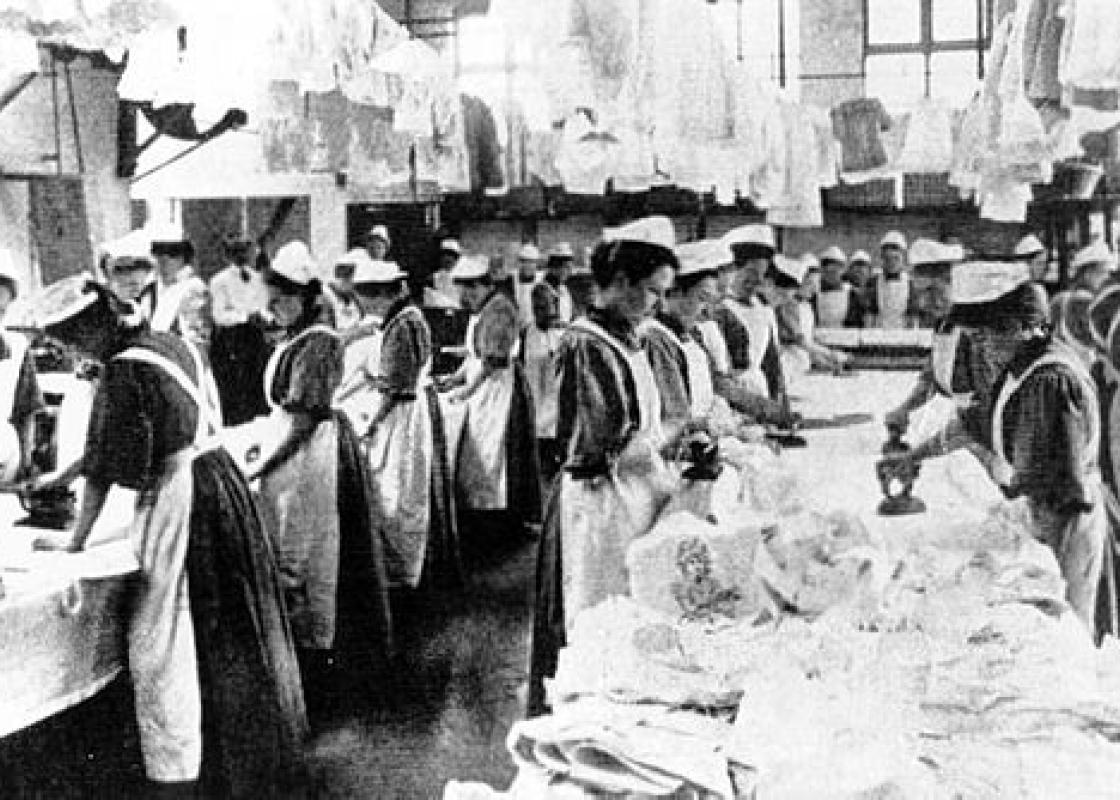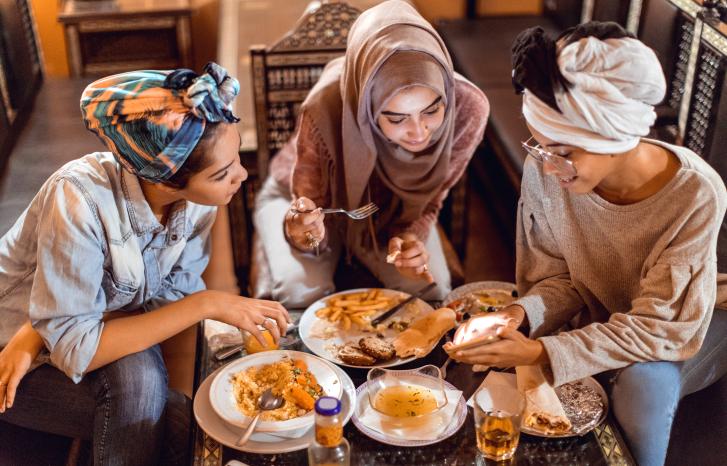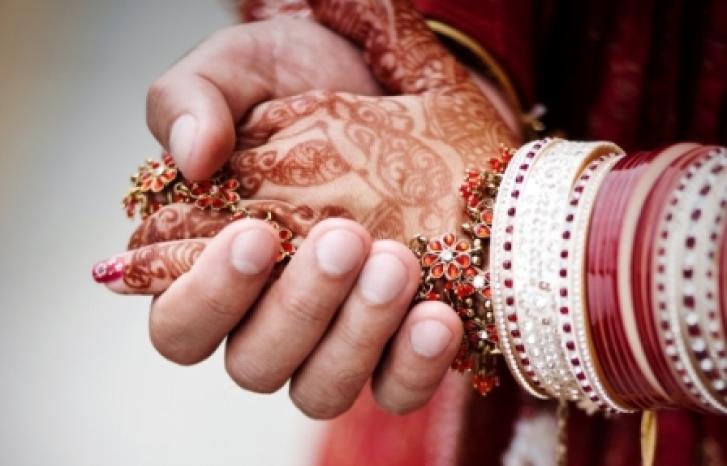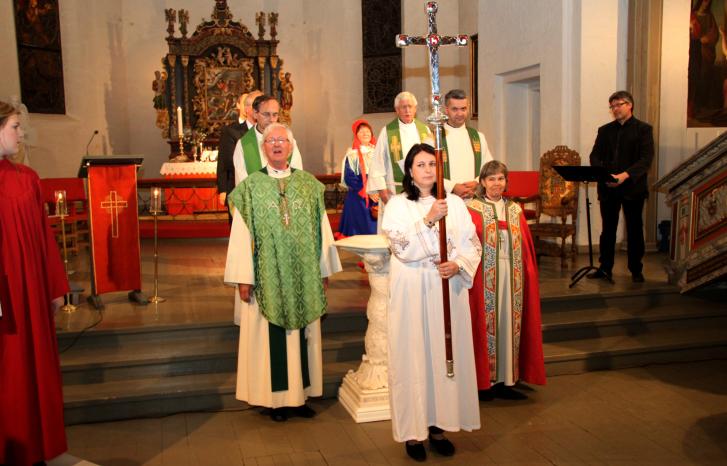"Ireland has a dramatic history characterised by a culture clash between religious institutions and secular forces," says Eirik Vatnøy, associate professor of rhetoric at the University of Oslo.
He has written an article about the "Justice for Magdalenes" movement, which attracted attention in Ireland between 2009 and 2013. The campaign was fought on behalf of Irish women who had been detained for years in Catholic laundries run by nuns.
"The laundries were called Magdalene Laundries, and were places where young women, and especially young women from the working class, were sent to forced labour," says Vatnøy.
He explains that the laundries were named after the biblical figure Mary Magdalene, who, for many Catholics, is the symbol of a "fallen woman."
Rhetoric of recognition
The survivors have since demanded financial redress and recognition for their version of what went on at the laundries, according to Vatnøy.
"This struggle for recognition is driven by a desire for others to see you the way you see yourself," says the rhetorician.
He is interested in what is known as the rhetoric of recognition:
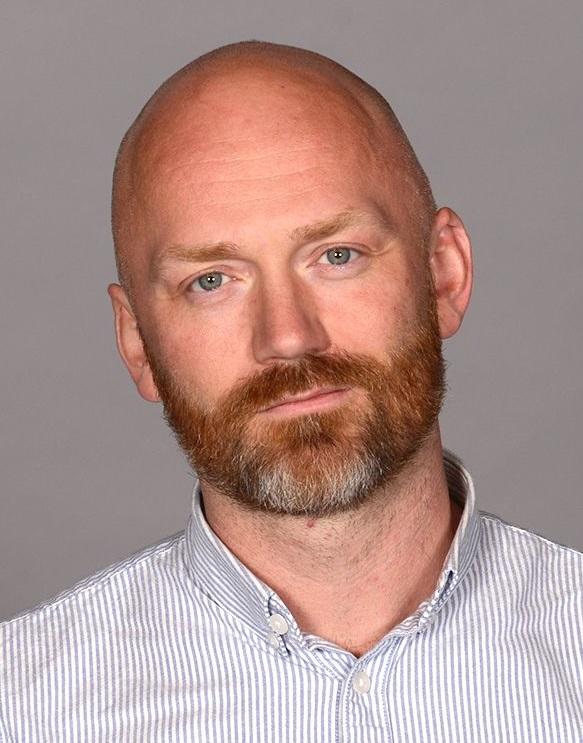
"How we talk about ourselves, and not least the words we use, helps to change society around us. A largely successful struggle for recognition also changes the identity of the community," he says.
To emphasise the importance of language, Vatnøy refers to the rhetoric employed by the Justice for Magdalenes group.
"The experiences of forced labour and oppression have led many of the women to live in shame and silence, and they thus may not have acquired a ‘victim’ identity. The use of terminology is important," says Vatnøy, who explains that many rights struggles are about defining an identity not only to live with, but which is also perceived as positive.
This is where the concept of "survivors" comes in.
"The term survivor has been used in countries like the United States about people who have been sexually assaulted because it has more positive connotations than 'victim'.”
According to Vatnøy, this use of words represents a shift from a hidden victim identity to also becoming a time witness:
"By calling the victims of the laundries 'survivors', we want to emphasise that the women's experiences are valuable by virtue of their status as historical witnesses.”
Lawlessness in religious institutions
By demanding recognition and financial redress, the Justice for Magdalenes campaign is part of the political reparation that has characterised the Irish public sphere in recent decades.
In the article, Vatnøy refers to a long tradition in Ireland where religious institutions have largely been allowed to operate outside the state's control.
This has, he says, led to tragic outcomes.
The victims wanted a public apology from the state.
"In retrospect, for example, infant cemeteries have been discovered, and orphanages where children born out of wedlock have lived in very poor conditions.”
According to Vatnøy, the fact that the institutions were allowed to do what they wanted created a framework in which many women and children in particular were actually quite disenfranchised.
"It's what we now call 'the hidden Ireland', a story that people have campaigned to bring to light in recent years.”
The soul-searching has come as an extension of a lengthy modernisation process. As the country’s political governance has become secularised, so legislation has moved in a liberal direction since the 1990s.
Homosexuality was first decriminalised in 1993, and divorce was legalised from 1995.
"But it wasn't until 2015 that gay marriage was introduced, and abortion remained illegal until 2018.”
Workhouses for "fallen women"
The liberalisation of the 1990s also dealt the death knell to Magdalene Laundries, which had been allowed to operate as a workhouse for "sinful" working-class women since the 18th century.
Although the laundries were most active between 1920 and 1960, the last women were not sent home until 1996.
"Some of the women had a conviction that led to their detention, while others may have been banished to the laundries by their own families.”
In retrospect, it has been revealed that several of the women were held captive by the institutions.
"They were not allowed to go to school and have had a double burden of shame and forced labour. Several of the women have also experienced other abuse, for example that their children were taken from them and adopted abroad against their will, typically to the United States," says Vatnøy.
The Catholic Church that ran the laundries accepted no criticism after they closed.
"Instead, they have maintained that the laundries were places where women who had sinned were cared for and saved from eternal damnation. For example, by picking up prostitutes and young women who had ‘become pregnant outside wedlock’, bringing shame on their families.”
The Catholic Church has also withheld documentation.
"This means that we don't know much about what the conditions were really like at the institutions. Based on witness statements, however, we know that many of the women have lived in terrible conditions," says Vatnøy.
The state contributed to the abuse
"Today, some of the women who were held at the laundries are still alive. Many of them wanted reparations before they died," says Vatnøy.
One of the things that triggered the Justice for Magdalenes campaign was a 2009 report prepared by a so-called truth commission in Ireland.
The report uncovered numerous cases of abuse at Catholic institutions against a particularly large number of children and women.
"At the same time, it said nothing about what had went on at Magdalene Laundries, which had either been forgotten or left out.”
Thus, the victims demanded that the conditions at the laundries also had to be uncovered, and that the authorities should be liable for the violations they had been subjected to.
"Since the laundries served as penal institutions in practice, the state had a legal responsibility to ensure the legality of their day-to-day operations.”
During the trial, it also emerged that the state had cooperated with the institutions, by, for example, escorting convicted women to the laundries.
"The victims wanted a public apology from the state, partly in the form of financial compensation.”
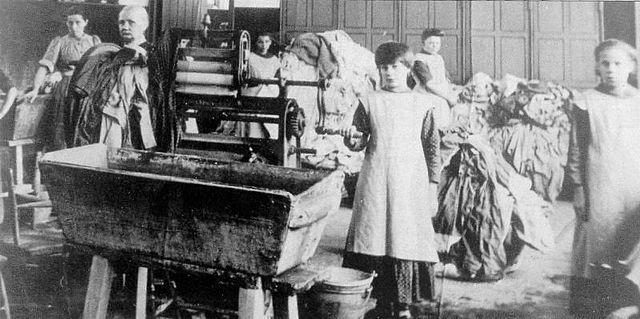
An apology culture?
"Official apologies have become more common in recent years," says Lisa Villadsen, a professor of rhetoric at the University of Copenhagen.
She says that there has been a marked increase in official apologies internationally since the 1990s, and regards this as a delayed reaction to the UN Declaration of Human Rights adopted in 1948.
"It formed a basis for how people should be entitled to be treated, and this became a foundation on which rights movements and other activists could build a cause.”
This is also in line with other developments in society where people are increasingly concerned with minorities' place and opportunities," says Villadsen.

"The first official apologies had a lot to do with colonialism, and came out of a postcolonial mindset.
The focus more recently has been on local minorities, such as the Kven and Sami, and other minorities like people with disabilities.”
Apologies by the Norwegian state
"The Norwegian state has made several official apologies, including to the Jews after World War II, and to our Sami indigenous people," says Eirik Vatnøy.
As in Ireland, the Storting appointed a truth commission in 2019 to investigate the Norwegianisation policy and injustices committed against the Sami, Kven and Norwegian Finns. The report is scheduled to be released on 1 June 2023.
It's about uncovering and putting into words the violations that lie at the core of Norwegian history.
As Vatnøy points out, the Sami rights struggle involves many specific political interests and wishes, not least related to the reindeer herding industry. At the same time, the demand for social recognition is central to their rights struggle, he believes.
"It's about uncovering and putting into words the violations that lie at the core of Norwegian history.”
It is by processing this history and taking the victims' perspectives into account that redemption is found, he believes.
Like the survivors of the Magdalene Laundries case, the Sami are not willing to merely settle for an identity they can "live with":
"It’s not enough simply to declare the Sami identity as equal to the Norwegian one, and that the Sami should have the same rights. In this context, the requirement for recognition is that the state must show that the Sami also make a positive contribution to the Norwegian community.”
A longer version of this article was first published in Norwegian, and was since translated into English.
